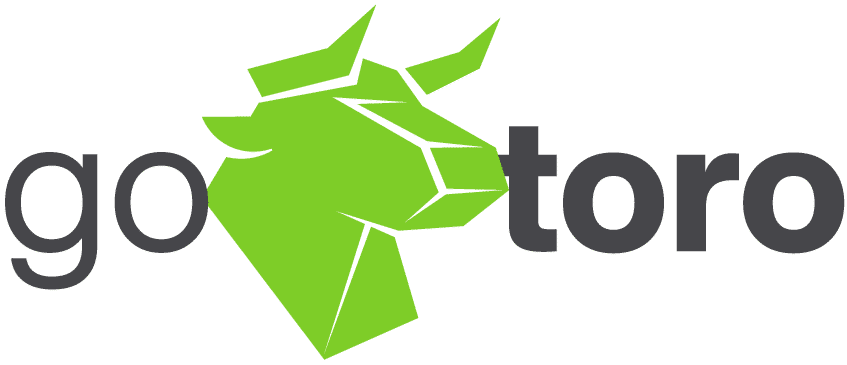The hospitality industry is particularly vital during the summer months, as travel peaks and tourists fill hotels and resorts. Effective hiring in the hospitality industry becomes crucial during this period, as hotels need to ensure they have enough staff to meet the increased demand and maintain high service standards.
However, hiring in the hospitality industry is not without its challenges. The industry faces unique issues, such as a high turnover rate, seasonal workforce fluctuations, and the difficulty of filling certain positions. Additionally, the competitive nature of the job market means that hotels must act swiftly to secure top talent. This blog will explore the key trends and strategies shaping hospitality hiring this summer, providing insights into how hotels can overcome these challenges.
Ongoing staffing challenges are resulting in historic career opportunities for hotel employees. There are more than 70,000 hotel jobs currently open across the nation, according to Indeed, and as of December 2023, national average hotel wages were at an all-time high of $23.91 per hour, according to the Bureau of Labor Statistics (American Hotel & Lodging Association, 2024)
Common Employee Benefits in Hospitality: Enhancing Workplace Culture

Emphasis on Great Workplace Culture
One of the most significant trends in hiring in the hospitality industry is the emphasis on creating a great workplace culture. A positive work environment is essential for attracting and retaining employees, as it fosters job satisfaction and loyalty. Hotels that prioritize workplace culture often see higher employee engagement and productivity.
Examples of Employee Benefits
Hotels offer various benefits to enhance workplace culture and attract potential employees. Some common benefits include:
Flexible schedules allow employees to adjust their work hours, accommodating personal commitments and reducing burnout, while professional development through training programs and career advancement opportunities helps them grow and feel valued. Additionally, offering employee discounts on hotel stays, dining, and other services provides significant perks, enhancing overall job satisfaction.
By focusing on these benefits, hotels can create a more appealing work environment, which is essential for successful hiring in the hospitality industry.
Challenges in Filling Housekeeping Positions
Why Housekeeping Roles Are the Hardest to Fill
Housekeeping positions are notoriously challenging to fill in the hospitality industry. Sixty-seven percent of survey respondents said they are experiencing a staffing shortage, and 12% said they are ‘severely understaffed,’ meaning the shortage is affecting their ability to operate. The most critical staffing need is housekeeping, with 48% ranking it as their top hiring need. (American Hotel & Lodging Association, 2024)
These roles are physically demanding and often come with lower wages compared to other hotel positions. Additionally, the perception of limited career advancement opportunities in housekeeping can deter potential candidates.
Impact on Hotel Operations and Guest Satisfaction
The difficulty in filling housekeeping positions can significantly impact hotel operations and guest satisfaction. A shortage of housekeepers can lead to delays in room turnovers, negatively affecting guests’ experiences. Moreover, overworked housekeeping staff may result in decreased job satisfaction and higher turnover rates, further exacerbating staffing challenges.
Potential Solutions for Addressing Housekeeping Challenges

Hotels are adopting various strategies to address the challenges of hiring housekeepers by offering competitive wages and additional benefits like health insurance and bonuses, which make these positions more attractive. Highlighting the importance of housekeeping roles and providing opportunities for career growth within the hotel helps change the perception of these jobs. Additionally, implementing technology to assist with housekeeping tasks, such as automated scheduling and cleaning tools, reduces the physical burden on staff and increases efficiency.
By implementing these strategies, hotels can improve their ability to attract and retain housekeeping staff, ensuring smoother operations and enhanced guest satisfaction.
The Quality Talent Dilemma in Hiring in the Hospitality Industry
Lack of Quality Talent: A Major Hiring Challenge
One of the top factors impacting hiring in the hospitality industry today is the lack of quality talent. Hotels often struggle to find candidates who possess the necessary skills, experience, and customer service acumen required to excel in various roles. This shortage is particularly pronounced in positions that demand specific expertise, such as culinary professionals, front desk managers, and event coordinators.
Impact on Different Positions Within the Hotel Industry
The lack of quality talent affects various positions within the hotel industry differently. For front desk staff, the high turnover and the need for excellent customer service skills make it challenging to maintain a consistent and capable team. Culinary professionals, such as chefs and kitchen staff, are in high demand, and the competition for skilled culinary professionals is fierce. This can lead to staffing shortages and impact the quality of food and service. Finding qualified candidates for managerial positions is also critical for maintaining operational efficiency and high service standards, yet the pool of experienced hospitality managers is limited.
Strategies for Attracting and Retaining Quality Talent
To address the quality talent dilemma in hiring in the hospitality industry, hotels are adopting several strategies. Offering competitive salaries and benefits is a crucial step. Attractive compensation packages, which include higher salaries, comprehensive benefits such as health insurance, retirement plans, and performance bonuses, can draw in top talent. Investing in training and development is another effective strategy. Providing opportunities for professional growth and career advancement makes hospitality roles more appealing, and hotels that offer continuous training programs and clear career pathways can retain talented employees longer. Enhancing recruitment processes is also essential. Utilizing advanced recruitment technologies and practices, such as leveraging social media, job fairs, and industry networks, can help identify and attract quality candidates more effectively.
Increasing Competition Between Candidates in Hiring in the Hospitality Industry
The Competitive Nature of the Job Market
The current job market for hiring in the hospitality industry is highly competitive. Top candidates often have multiple job offers on the table, which means hotels must act quickly and decisively to secure the best talent. This competitive environment can make it challenging for hotels to fill positions promptly and effectively.
Importance of Speed in the Hiring Process
Speed is critical when it comes to hiring in the hospitality industry. Delays in the recruitment process can result in losing top candidates to competing offers. Therefore, hotels must streamline their hiring processes to ensure they can make quick and informed decisions.
Tips for Streamlining Recruitment Processes
To improve the speed and efficiency of their hiring processes, hotels can implement several strategies. Automating initial screenings using tools that can quickly analyze resumes and applications saves time and ensures that only the most qualified candidates move forward. Conducting efficient interviews by implementing structured and concise formats helps evaluate candidates quickly. Virtual interviews can expedite the process by removing the need for scheduling in-person meetings. Making quick decisions by establishing a clear decision-making framework and reducing bureaucratic hurdles can help hotels extend job offers faster. This includes having a predefined set of criteria for evaluating candidates and empowering hiring managers to make prompt decisions.
The Role of AI in Hospitality Recruiting

Overview of AI in Hiring in the Hospitality Industry
Artificial Intelligence (AI) is revolutionizing hiring in the hospitality industry. By automating various aspects of the recruitment process, AI can help hotels identify and hire top talent more efficiently and effectively. AI technologies are being integrated into recruitment platforms to enhance candidate screening, interview scheduling, and performance analytics.
Specific Applications of AI in the Hiring Process
AI is being used in several ways to improve hiring in the hospitality industry. In candidate screening, AI-powered tools can analyze resumes and applications to identify the best candidates based on predefined criteria. This speeds up the initial screening process and ensures a higher quality pool of applicants. For interview scheduling, AI can automate the coordination of interviews, reducing the time and effort required to schedule meetings with candidates, ensuring a smoother and faster recruitment process. In performance analytics, AI can analyze data from past hires to identify patterns and predictors of successful employees. This information can be used to refine recruitment strategies and improve the quality of hires.
Benefits of Using AI in Recruitment
Using AI in hiring in the hospitality industry offers several benefits. AI can significantly reduce the time and effort required for various recruitment tasks, allowing HR teams to focus on more strategic activities. It can help eliminate human biases in the screening process, leading to more objective and fair hiring decisions. Additionally, AI provides valuable insights into recruitment metrics and performance, helping hotels optimize their hiring strategies.
By leveraging AI effectively, hotels can enhance their recruitment processes and overcome many of the challenges associated with hiring in the hospitality industry.
Impact of Seasonal Hiring in the Hospitality Industry
The Cyclical Nature of Hiring in the Hospitality Industry
The hospitality industry is characterized by its cyclical nature, with hiring needs fluctuating based on seasonal demand. During peak seasons, such as summer, holidays, and major events, hotels experience a surge in bookings, necessitating a temporary increase in staff. This cyclical hiring pattern poses unique challenges, as hotels must efficiently manage the influx of seasonal workers to maintain service quality and operational efficiency.
Strategies for Managing Seasonal Workforce Fluctuations
Managing seasonal workforce fluctuations effectively is crucial for maintaining consistent service standards. One strategy is to establish a reliable pool of seasonal workers who can be rehired each peak season. This approach not only saves time and resources on training new staff but also ensures a level of familiarity and experience among seasonal employees. Another strategy is to offer flexible work arrangements and incentives to attract and retain seasonal workers. Providing clear communication about job expectations and potential career advancement opportunities can also help in securing a dependable seasonal workforce.
Benefits and Challenges of Hiring Seasonal Workers
Hiring seasonal workers in the hospitality industry comes with both benefits and challenges. One of the primary benefits is the ability to quickly scale the workforce to meet increased demand, ensuring that hotels can provide the high level of service expected by guests. Seasonal hiring also allows hotels to manage labor costs more effectively by employing additional staff only when needed.
However, there are challenges associated with seasonal hiring. These include the time and resources required for recruiting, training, and managing a transient workforce. Additionally, maintaining consistent service quality can be difficult when relying on temporary staff who may have varying levels of experience and commitment. Hotels must balance these benefits and challenges to optimize their seasonal hiring strategies.
Diversity and Inclusion in Hiring in the Hospitality Industry

Importance of Promoting Diversity and Inclusion Within the Hotel Workforce
Promoting diversity and inclusion within the hotel workforce is essential for fostering a welcoming and innovative work environment. A diverse workforce brings a variety of perspectives, skills, and experiences, which can enhance problem-solving and decision-making processes. Inclusion ensures that all employees feel valued and respected, leading to higher job satisfaction and employee retention.
Initiatives and Programs Aimed at Increasing Diversity in Hiring
Many hotels are implementing initiatives and programs to increase diversity in hiring within the hospitality industry. These initiatives include targeted recruitment efforts aimed at underrepresented groups, partnerships with diversity-focused organizations, and inclusive hiring practices that minimize biases. Training programs on diversity and inclusion for hiring managers and staff are also becoming more common, helping to create an equitable hiring process and workplace culture.
Impact of a Diverse Workforce on Hotel Culture and Guest Experience
A diverse workforce positively impacts hotel culture and guest experience. Employees from various backgrounds can contribute unique insights and ideas, fostering a more dynamic and creative work environment. This diversity enhances the hotel’s ability to cater to a wide range of guests, as staff members can relate to and understand different cultural preferences and needs. Furthermore, guests are more likely to feel comfortable and welcomed in an inclusive environment, leading to higher satisfaction and loyalty.
Employee Training and Development in Hiring in the Hospitality Industry
Importance of Continuous Training and Development for Hotel Staff
Continuous training and development are vital components of successful hiring in the hospitality industry. Regular training ensures that employees remain up-to-date with industry standards, best practices, and new technologies. Development programs help staff acquire new skills and knowledge, preparing them for career advancement and increasing their overall job satisfaction.
Examples of Training Programs and Career Development Opportunities
Hotels offer various training programs and career development opportunities to support their employees. These programs may include onboarding sessions for new hires, ongoing customer service training, leadership development courses, and cross-training in different hotel departments. Some hotels also provide access to external educational resources, such as hospitality management courses and certifications, to further enhance employee skills and career prospects.
Investing in Employee Development to Increase Retention Rates
Investing in employee development can lead to higher retention rates, which is a critical goal in the hospitality industry. When employees feel that their employer is invested in their growth and success, they are more likely to stay with the company long-term. Providing clear pathways for career advancement and recognizing employees’ achievements fosters a sense of loyalty and motivation. By prioritizing training and development, hotels can build a skilled, committed, and satisfied workforce, ultimately improving overall service quality and operational efficiency.
The Role of Technology Beyond AI in Hiring in the Hospitality Industry
Technological Advancements Impacting Hospitality Hiring
Beyond AI, several other technological advancements are revolutionizing hiring in the hospitality industry. Recruitment software, for instance, has become an indispensable tool for streamlining the hiring process. These platforms offer features like applicant tracking, automated job postings, and resume parsing, which significantly reduce the time and effort required to manage applications.
Virtual job fairs are another innovation transforming hospitality hiring. These online events allow hotels to connect with a large pool of potential candidates without the geographical constraints of traditional job fairs. Virtual job fairs can include live chats, video interviews, and interactive presentations, providing a comprehensive and engaging recruitment experience.
Additionally, mobile recruitment apps are gaining popularity in the hospitality industry. These apps enable candidates to apply for jobs, schedule interviews, and receive updates directly from their smartphones, making the process more convenient and accessible.
68 percent of job seekers ages 18-25 use their mobile devices to search for jobs (Recruiter, 2024).
Benefits of Using Technology to Streamline the Recruitment Process
Using technology to streamline the recruitment process offers numerous benefits for hiring in the hospitality industry. One of the primary advantages is increased efficiency. Recruitment software automates repetitive tasks, freeing up HR professionals to focus on more strategic activities. This leads to faster hiring cycles and ensures that hotels can quickly fill critical positions.
Technology also enhances the candidate experience. Features such as automated communication and real-time updates keep candidates informed throughout the hiring process, reducing uncertainty and improving their overall experience. Virtual job fairs and mobile recruitment apps make it easier for candidates to engage with potential employers, leading to a more positive and seamless application process.
Moreover, technology provides valuable data and insights. Recruitment platforms can track metrics such as time-to-hire, source of hire, and candidate demographics, enabling hotels to optimize their hiring strategies and make data-driven decisions.
The Future of Hiring in the Hospitality Industry
In conclusion, hiring in the hospitality industry is evolving rapidly, driven by advancements in technology and the need to adapt to new challenges. From improving workplace culture and addressing seasonal hiring fluctuations to leveraging AI and other technological tools, hotels are finding innovative ways to attract and retain top talent. Diversity and inclusion initiatives, continuous training and development, and the efficient use of technology are all crucial components of a successful hiring strategy.
As the hospitality industry continues to navigate these changes, staying ahead of the curve is essential. By embracing new technologies and adopting best practices, hotels can ensure they remain competitive and capable of delivering exceptional guest experiences.
Ready to revolutionize your hiring process? Request a demo from Gotoro today and discover how our cutting-edge solutions can meet your hospitality hiring needs.


